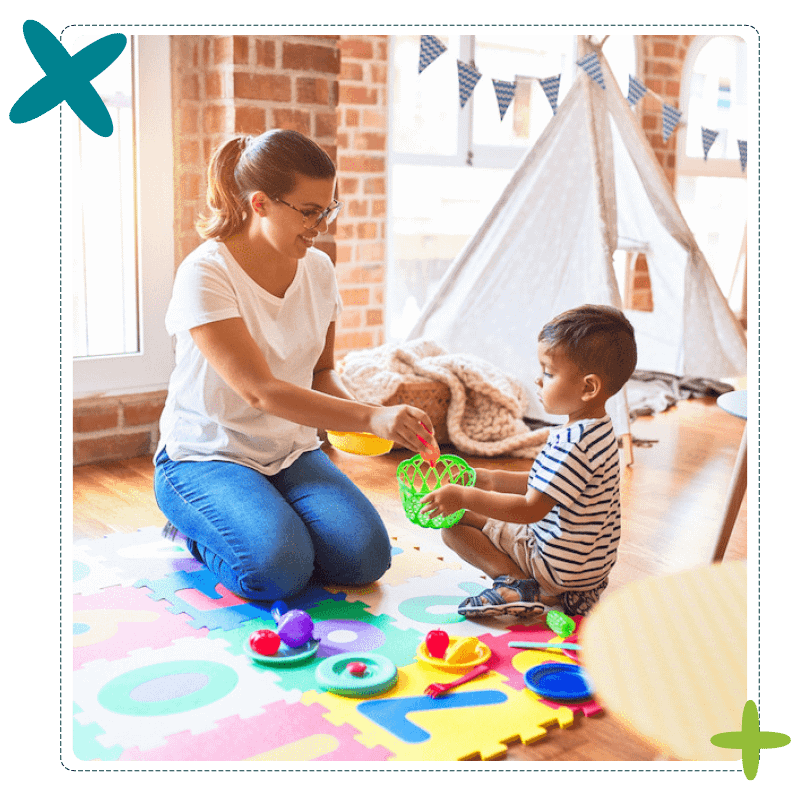Frequently Asked Questions
What is ABA therapy and how does it work in Denver?
ABA therapy, or Applied Behavior Analysis, is a scientifically-backed approach used to enhance the skills of children with autism in Denver. It works by implementing personalized treatment plans that focus on improving specific behaviors through positive reinforcement and structured interventions.
What is the goal of ABA therapy for children in Denver?
The goal of ABA therapy for children in Denver is to enhance their social, communication, and learning skills through personalized treatment plans, ultimately fostering independence and improving their quality of life while supporting families throughout the process.
How long does ABA therapy typically last in Denver?
The duration of ABA therapy in Denver typically varies based on individual needs, but many children engage in therapy for several months to a few years, depending on their progress and specific goals.
What is the role of a BCBA in ABA therapy in Denver?
The role of a BCBA in ABA therapy in Denver involves designing, implementing, and overseeing individualized treatment plans for children with autism, ensuring effective therapy that meets each child's unique needs while providing support and guidance to families.
How effective is ABA therapy for autistic children near me?
The effectiveness of ABA therapy for autistic children in your area is well-documented, showing significant improvements in communication, social skills, and daily living activities when tailored to each child's unique needs.
Do insurance plans cover ABA therapy near me?
Insurance plans typically cover ABA therapy, but coverage can vary by provider and policy. It’s best to check with your specific insurance company to understand the details of your benefits and any requirements for coverage.
Where can I find ABA therapy centers in Denver Colorado?
You can find ABA therapy centers in Denver, Colorado, by searching online for local providers, visiting directories, or contacting organizations like GreenLight ABA, which specializes in personalized ABA therapy for children.
Where can I find ABA therapy centers near my location?
You can find ABA therapy centers near your location by searching online directories, local community resources, or by visiting the GreenLight ABA website, which provides information on services available in your area, including in-home and school-based options.
Can ABA therapy help with speech delays in Denver?
ABA therapy can effectively support children with speech delays in Denver. Through personalized strategies, it promotes communication skills and encourages meaningful interactions, helping children improve their speech and language development.
How effective is ABA therapy for autism in Denver?
The effectiveness of ABA therapy for autism in Denver is well-documented, showing significant improvements in communication, social skills, and daily living activities for children. Tailored programs ensure personalized support for each child's unique needs.
How do I get my child started with ABA therapy in Denver?
Getting your child started with ABA therapy in Denver involves contacting GreenLight ABA to discuss your child's needs. Our team will guide you through the enrollment process and create a personalized therapy plan tailored to your child's unique requirements.
What are the costs of ABA therapy in Denver?
The costs of ABA therapy in Denver vary based on factors such as the type of service, frequency of sessions, and specific needs of the child. It's best to contact GreenLight ABA for detailed pricing information tailored to your situation.
What are the qualifications of ABA therapists near me?
The qualifications of ABA therapists near you typically include a master's degree in psychology, education, or a related field, along with certification from the Behavior Analyst Certification Board (BACB). Many also have specialized training in Applied Behavior Analysis.
What techniques are used in ABA therapy?
The techniques used in ABA therapy include reinforcement strategies, prompting, modeling, and functional behavior assessments, all tailored to enhance communication, social skills, and daily living skills for children with autism.
How can parents support ABA therapy at home?
Parents can support ABA therapy at home by implementing consistent routines, reinforcing positive behaviors, and using techniques learned during therapy sessions. Engaging in regular communication with therapists also helps to ensure alignment and effectiveness of the therapy strategies.
What is the expected outcome of ABA therapy?
The expected outcome of ABA therapy is to improve a child's social, communication, and behavioral skills, fostering greater independence and enhancing overall quality of life for children with autism and their families.
How to choose the right ABA therapist?
Choosing the right ABA therapist involves considering their qualifications, experience with autism, and approach to therapy. It's essential to ensure they offer personalized treatment plans that align with your child's specific needs and family goals.
What are common challenges in ABA therapy?
Common challenges in ABA therapy include difficulty in maintaining consistency across different environments, varying levels of engagement from the child, and the need for ongoing parent training to reinforce skills at home and in the community.
How does ABA therapy benefit non-verbal children?
The benefits of ABA therapy for non-verbal children include enhancing communication skills, teaching alternative forms of expression, and promoting social interactions. Through individualized strategies, ABA therapy helps these children develop essential skills for effective communication and engagement.
What age is best to start ABA therapy?
The best age to start ABA therapy is as early as possible, typically between 18 months and 3 years, as early intervention can significantly enhance a child's development and improve outcomes.
Are there alternative therapies to ABA for autism?
Alternative therapies to ABA for autism include options like speech therapy, occupational therapy, and social skills training. Each approach can complement ABA, offering diverse strategies to support children's development and address their unique needs.
What materials are needed for ABA therapy sessions?
The materials needed for ABA therapy sessions include visual aids, reinforcement items, data collection tools, and specific toys or games tailored to the child's interests and goals. These resources help facilitate effective learning and engagement during therapy.
How can schools integrate ABA therapy programs?
Schools can integrate ABA therapy programs by collaborating with certified ABA specialists to develop tailored interventions, training staff on ABA techniques, and creating supportive environments that facilitate learning for students with autism.
What qualifications should I look for in ABA therapists?
The qualifications to look for in ABA therapists include a master's degree in psychology or a related field, certification from the Behavior Analyst Certification Board (BACB), and experience working with children with autism.
How often should ABA therapy sessions occur?
The frequency of ABA therapy sessions depends on each child's individual needs. Typically, sessions may occur several times a week, with adjustments made based on progress and specific goals outlined in their personalized treatment plan.
How does ABA therapy measure progress in children?
ABA therapy measures progress in children by using data-driven assessments to track behavioral changes and skill acquisition over time. This includes regular evaluations and adjustments to personalized treatment plans based on each child's unique needs.
What parent training options are available for ABA?
The parent training options available for ABA include workshops, one-on-one coaching sessions, and online resources designed to equip parents with strategies to support their child's development effectively.
Can ABA therapy address behavioral issues beyond autism?
ABA therapy can effectively address behavioral issues beyond autism, including conditions such as ADHD, anxiety, and other developmental challenges. Its principles can be tailored to support a range of behavioral needs in children.
What environments are suitable for ABA therapy?
The suitable environments for ABA therapy include in-home settings, schools, and community locations. Each environment is tailored to meet the child's needs, promoting effective learning and skill development in familiar surroundings.
How is success defined in ABA therapy?
Success in ABA therapy is defined by the achievement of individualized goals, improvements in behavior, and the development of essential skills that enhance a child's daily functioning and overall quality of life.







